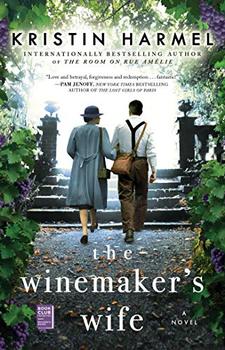Summary | Excerpt | Reading Guide | Reviews | Beyond the book | Read-Alikes | Genres & Themes | Author Bio

A Novel
by Kate MortonIf ever there was a
story that confirms Bob Dylan's
notion that, "the times, they are a-changin',"
it is The House at Riverton.
Just the life of protagonist Grace
Reeves alone stands as powerful
testament to that reality. Born at
the dawn of the 20th
Century and destined to become a
servant to the same British noble
family that her mother served, Grace
lived through two world wars,
outlived all of the family members
she waited on, became a single mom,
and graduated from college to become
a noted archeologist. Perhaps
Morton's greatest skill as a
first-time novelist is creating an
intensely rich character that could
adapt to the wild swings British
culture took in the last hundred
years. Yet Grace's evolution from
being a servant living in an
inexorably rigid class system with
its almost laughable moral standards
to a strong, independent woman of
the latter half of the 20th
Century is totally convincing. She
is the best part of Morton's novel.
Don't misunderstand. The story is a
good one. When, at ninety-eight,
Grace is approached by an American
independent filmmaker to iterate
memories of her years in service at
the house at Riverton, her mind
revisits the past -- her own and
that of the Ashbury family,
especially the dark secrets that all
but destroyed them – in rich
high-def flashbacks. There is an air
of real mystery surrounding the
tragic post-World War I suicide of
family friend and poet R.S. Hunter;
an event witnessed by Lord Ashbury's
two daughters, Hannah and Emmeline,
both of whom happened to be in love
with the young veteran. No one,
except Grace, knows what really
happened. And Grace, with the
protective invisibility that
concealed downstairs staff, was able
to silently observe the family,
including its triumphs, its
tragedies, its warts and secrets.
Secrets which she was expected,
without question, to protect even at
the expense of her own feelings.
Thus, though the family is long gone
and the era of upstairs/downstairs
is ancient history, it is with great
ambivalence that she gives herself
permission to even think about the
events surrounding the young man's
death. Finally, perched on the brink
of her own mortality, Grace decides
to salve her conscience by dictating
all she knows onto tapes she intends
to give to her author grandson.
While other reviewers have faulted
The House at Riverton for
being slow moving I think it moves
along at just the right pace. In
order to get to know Grace in all
her complexity the plot couldn't be
rushed. Peering, as we do, into her
memories gives us a thorough
understanding of where she has been,
how she has evolved and who she
currently is. It also establishes
motivation for the actions of the
people she summons up from her past.
In the end I was glad to have become
acquainted with Grace Reeves and a
little sad that I would never get
the chance to meet her face-to-face.
First Impressions: 16 BookBrowse members reviewed this book, rating it an average of 4 out of 5 stars.
![]() This review was originally published in The BookBrowse Review in May 2008, and has been updated for the
March 2009 edition.
Click here to go to this issue.
This review was originally published in The BookBrowse Review in May 2008, and has been updated for the
March 2009 edition.
Click here to go to this issue.

If you liked The House at Riverton, try these:

by Kristin Harmel
Published 2020
A moving story set amid the champagne vineyards of northern France during the darkest days of World War II.

by Sarah Waters
Published 2015
A love story, a tension-filled crime story, and a beautifully atmospheric portrait of a fascinating time and place.
Your guide toexceptional books
BookBrowse seeks out and recommends the best in contemporary fiction and nonfiction—books that not only engage and entertain but also deepen our understanding of ourselves and the world around us.